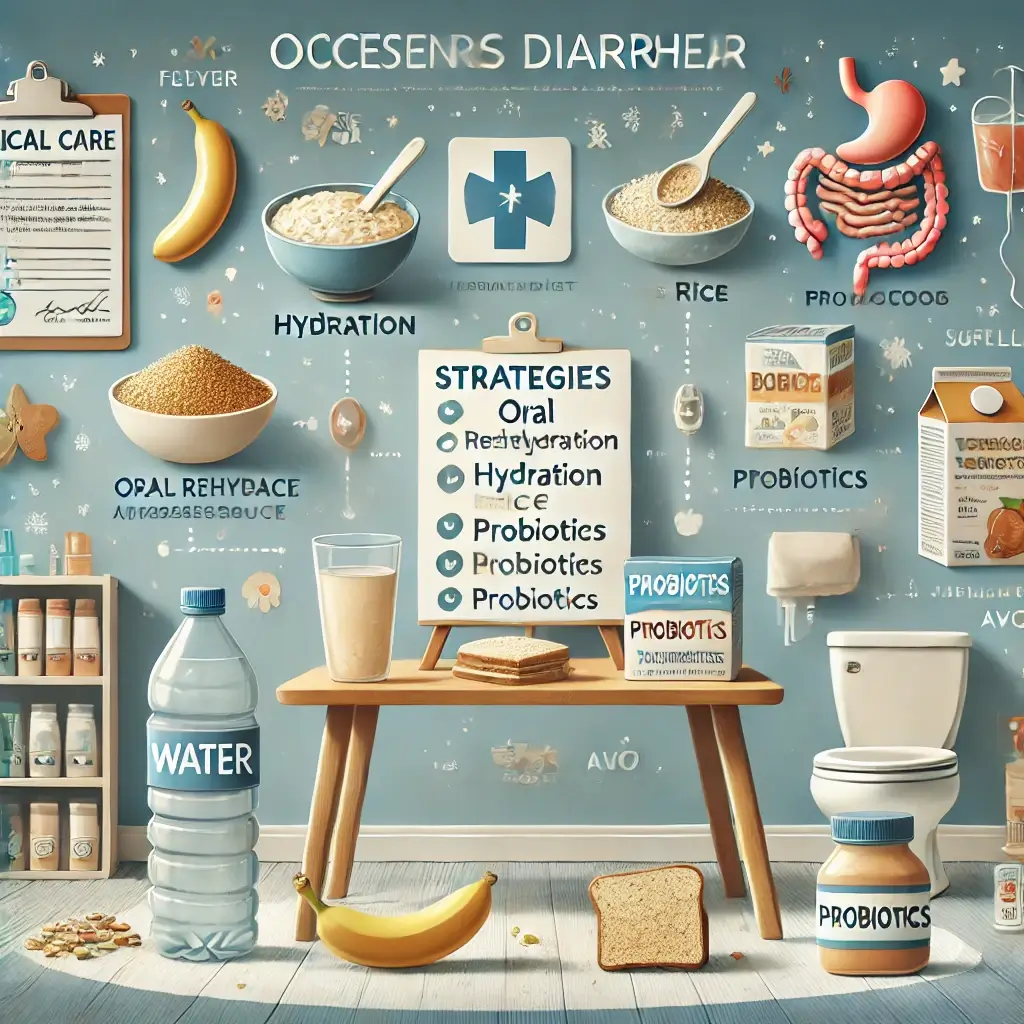Understanding Occasional Diarrhea: A Common Gastrointestinal Challenge
Occasional diarrhea is a common yet disruptive gastrointestinal condition characterized by frequent, loose, and watery stools. It often occurs as a response to dietary changes, viral or bacterial infections, or stress. While typically short-lived, lasting only a few days, it can disrupt daily activities and lead to dehydration or electrolyte imbalances if not managed effectively. According to the World Health Organization (WHO), acute diarrhea remains a leading cause of illness globally, responsible for significant morbidity, particularly in resource-limited settings.
Adult Impact and Contributing Factors
In adults, occasional diarrhea is usually not life-threatening. However, understanding the underlying causes and management strategies is essential to prevent complications. Factors like food intolerances, medications such as antibiotics, and infections like norovirus or rotavirus are common culprits. Notably, stress-related diarrhea, associated with irritable bowel syndrome (IBS), has also gained recognition, highlighting the gut-brain connection’s significance in digestive health (Clinical Gastroenterology and Hepatology, 2020).
Research Focus and Management Approaches
This article explores the latest research-backed methods for addressing occasional diarrhea, focusing on hydration, dietary adjustments, and medical interventions.
Hydration: A Critical Component
Dehydration is a primary concern with diarrhea due to fluid and electrolyte losses. Rehydration therapies, such as oral rehydration solutions (ORS), are foundational. A meta-analysis in the Cochrane Database of Systematic Reviews (2016) demonstrated that ORS containing water, glucose, and electrolytes effectively reduces dehydration-related complications. For mild cases, clear fluids like broths, herbal teas, and electrolyte-enriched drinks are recommended. Avoid caffeine, alcohol, and sugary drinks, which can exacerbate symptoms.
Essential Dietary Modifications
BRAT Diet
The BRAT diet—bananas, rice, applesauce, and toast—is a traditional approach for managing diarrhea. These foods are bland, low in fiber, and help solidify stools. However, a study published in Pediatrics International (2017) cautioned that the diet lacks essential nutrients and should only be used short-term. Pair it with nutrient-rich foods during recovery.
The Role of Pre and Probiotics
Prebiotics and Probiotics
Probiotics, such as Lactobacillus rhamnosus GG, have shown efficacy in reducing diarrhea duration and severity, particularly in infectious cases (The American Journal of Gastroenterology, 2017). Prebiotics, found in foods like garlic and bananas, support probiotic activity by nourishing beneficial gut bacteria. Combining prebiotics and probiotics can enhance gut resilience during diarrhea episodes.
Managing Food Triggers
Trigger Foods
Identifying and avoiding personal triggers is essential. Spicy foods, fatty meals, and artificial sweeteners can irritate the gut. A food diary can help track and eliminate offenders.
Available Medical Treatment Options
Over-the-Counter Medications
Loperamide (Imodium) effectively reduces stool frequency by slowing intestinal motility. However, as noted in a review from the Journal of Clinical Pharmacy and Therapeutics (2021), it should not be used for prolonged periods or if diarrhea is accompanied by fever or bloody stools. These symptoms may indicate infections where antimotility agents are contraindicated.
Antibiotic Treatment Considerations
Antibiotics and Antimicrobials
In cases of bacterial infections such as E. coli or Salmonella, antibiotics may be necessary. A study in The Lancet Infectious Diseases (2022) emphasized the importance of appropriate antibiotic selection to prevent resistance. However, most viral diarrheas resolve without antibiotics.
The Importance of Rest and Lifestyle Changes
Rest is vital during diarrhea episodes, as it allows the body to direct energy toward recovery. Stress management, particularly for individuals with IBS or stress-induced diarrhea, plays a crucial role. Techniques such as mindfulness and yoga have been linked to improved gut health and symptom reduction (Clinical Gastroenterology and Hepatology, 2020).
Recognizing Warning Signs
While most cases of occasional diarrhea are self-limiting, certain symptoms require immediate medical attention:
Diarrhea lasting more than three days.
Signs of severe dehydration, such as reduced urination, confusion, or dizziness.
Bloody stools or severe abdominal pain.
Persistent diarrhea following international travel, which may indicate parasitic infections.
According to guidelines from the American Gastroenterological Association (AGA), persistent diarrhea warrants stool testing to rule out infections, inflammatory bowel diseases, or malabsorption syndromes (AGA Clinical Practice Guidelines, 2023).
Final Insights and Management Overview
Occasional diarrhea is a manageable yet inconvenient condition. By implementing evidence-based strategies—hydrating properly, following a balanced diet, and using over-the-counter remedies judiciously—most individuals can recover swiftly. Recognizing red flags and seeking professional care when necessary ensures timely treatment and prevents complications. Staying informed empowers individuals to maintain optimal digestive health and swiftly overcome occasional diarrhea’s challenges.
Research Citations
References
Guandalini, S., et al. (2016). Efficacy of oral rehydration solutions for treating acute watery diarrhea: A systematic review and meta-analysis. Cochrane Database of Systematic Reviews, (4). Link
Guarner, F., et al. (2017). Probiotics for the treatment of acute infectious diarrhea. The American Journal of Gastroenterology, 112(2), 201–225. Link
Camilleri, M., et al. (2020). Stress and gut-brain axis disorders: Emerging understanding in clinical practice. Clinical Gastroenterology and Hepatology, 18(5), 996–1005.
Hall, C. E., et al. (2021). Antimotility agents for diarrhea management: Guidelines and safety. Journal of Clinical Pharmacy and Therapeutics, 46(3), 487–496.
Spencer, J., et al. (2022). Antibiotic stewardship for bacterial diarrhea: A systematic approach. The Lancet Infectious Diseases, 22(8), 1023–1031.
